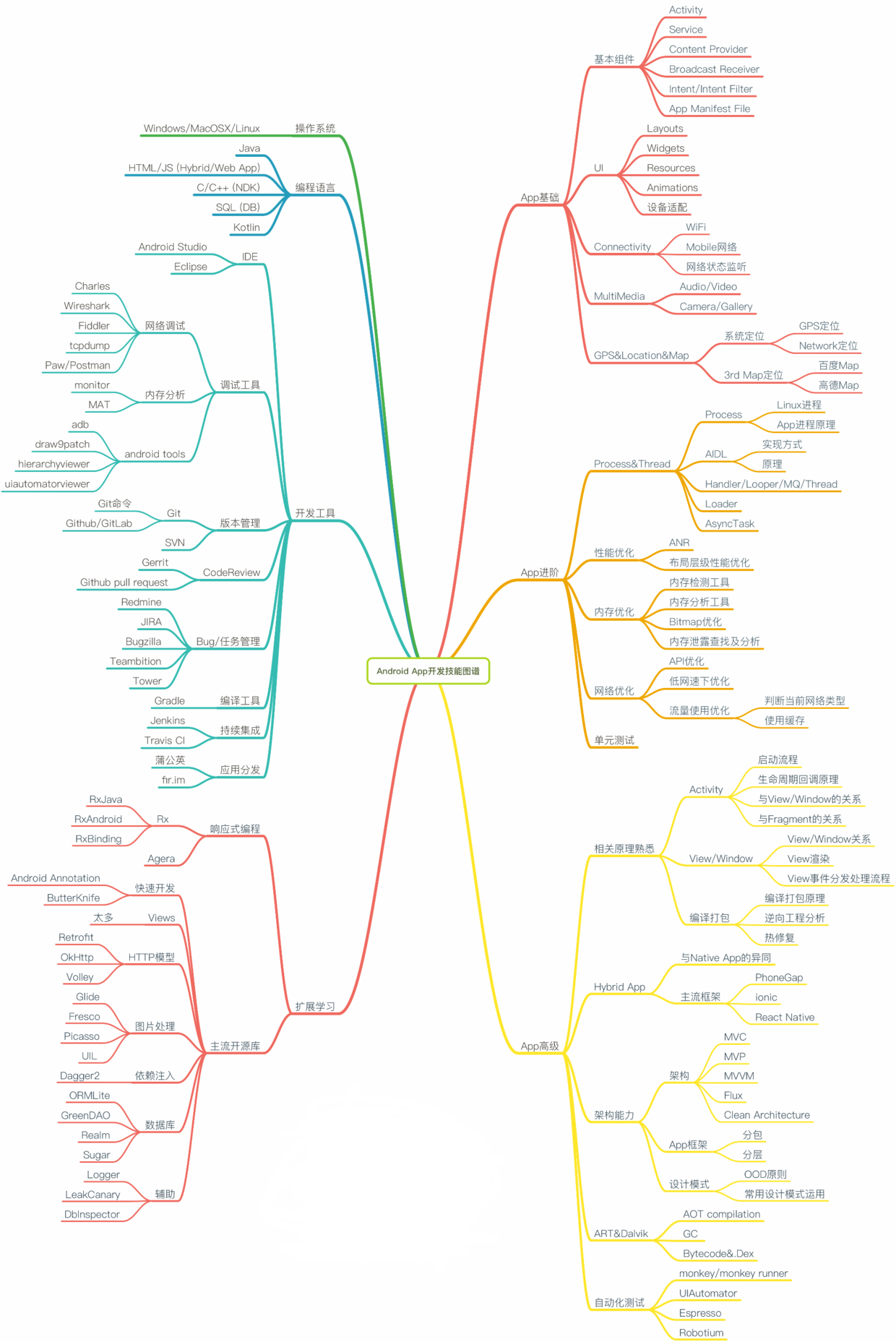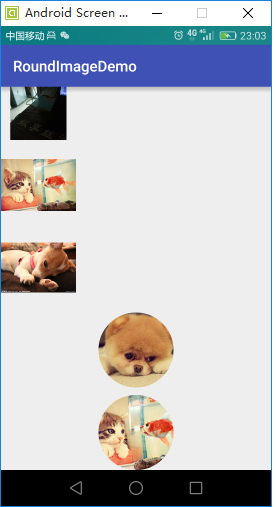編輯:關於android開發
本文,提供“Android應用被卸載後,自動使用 浏覽器打開指定連接”的方法。
原理:在安卓程序中某處,基於JNI調用C代碼開啟一個子進程監控應用在系統中的文件目錄,一旦應用被卸載,該目錄將會被系統刪除,此時觸發子進程執行相關代碼(本例調用浏覽器執行打開一個連接)
1、在安卓項目下創建jni目錄
2、在jni目錄下創建文件observer.c
/*
* Copyright (C) 2009 The Android Open Source Project
*
* Licensed under the Apache License, Version 2.0 (the "License");
* you may not use this file except in compliance with the License.
* You may obtain a copy of the License at
*
* http://www.apache.org/licenses/LICENSE-2.0
*
* Unless required by applicable law or agreed to in writing, software
* distributed under the License is distributed on an "AS IS" BASIS,
* WITHOUT WARRANTIES OR CONDITIONS OF ANY KIND, either express or implied.
* See the License for the specific language governing permissions and
* limitations under the License.
*
*/
#include
#include
#include
#include
#include
#include
#include
#include
#include
/* 宏定義begin */
//清0宏
#define MEM_ZERO(pDest, destSize) memset(pDest, 0, destSize)
//LOG宏定義
#define LOG_INFO(tag, msg) __android_log_write(ANDROID_LOG_INFO, tag, msg)
#define LOG_DEBUG(tag, msg) __android_log_write(ANDROID_LOG_DEBUG, tag, msg)
#define LOG_WARN(tag, msg) __android_log_write(ANDROID_LOG_WARN, tag, msg)
#define LOG_ERROR(tag, msg) __android_log_write(ANDROID_LOG_ERROR, tag, msg)
/* 內全局變量begin */
static char c_TAG[] = "onEvent";
static jboolean b_IS_COPY = JNI_TRUE;
/* 暴露給Android代碼調用的natvie方法 */
jstring Java_com_zgy_catchuninstallself_UninstallObserver_startWork(JNIEnv* env,
jobject thiz, jstring path, jstring url, jint version) {
jstring tag = (*env)->NewStringUTF(env, c_TAG);
//初始化log
LOG_DEBUG((*env)->GetStringUTFChars(env, tag, &b_IS_COPY),
(*env)->GetStringUTFChars(env, (*env)->NewStringUTF(env, "init OK"),
&b_IS_COPY));
//fork子進程,以執行輪詢任務
pid_t pid = fork();
if (pid < 0) {
//出錯log
LOG_ERROR((*env)->GetStringUTFChars(env, tag, &b_IS_COPY),
(*env)->GetStringUTFChars(env,
(*env)->NewStringUTF(env, "fork failed !!!"),
&b_IS_COPY));
} else if (pid == 0) {
//子進程注冊目錄監聽器
int fileDescriptor = inotify_init();
if (fileDescriptor < 0) {
LOG_DEBUG((*env)->GetStringUTFChars(env, tag, &b_IS_COPY),
(*env)->GetStringUTFChars(env,
(*env)->NewStringUTF(env,
"inotify_init failed !!!"), &b_IS_COPY));
exit(1);
}
int watchDescriptor;
watchDescriptor = inotify_add_watch(fileDescriptor,
(*env)->GetStringUTFChars(env, path, NULL), IN_DELETE);
if (watchDescriptor < 0) {
LOG_DEBUG((*env)->GetStringUTFChars(env, tag, &b_IS_COPY),
(*env)->GetStringUTFChars(env,
(*env)->NewStringUTF(env,
"inotify_add_watch failed !!!"),
&b_IS_COPY));
exit(1);
}
//分配緩存,以便讀取event,緩存大小=一個struct inotify_event的大小,這樣一次處理一個event
void *p_buf = malloc(sizeof(struct inotify_event));
if (p_buf == NULL) {
LOG_DEBUG((*env)->GetStringUTFChars(env, tag, &b_IS_COPY),
(*env)->GetStringUTFChars(env,
(*env)->NewStringUTF(env, "malloc failed !!!"),
&b_IS_COPY));
exit(1);
}
//開始監聽
LOG_DEBUG((*env)->GetStringUTFChars(env, tag, &b_IS_COPY),
(*env)->GetStringUTFChars(env,
(*env)->NewStringUTF(env, "start observer"),
&b_IS_COPY));
//read會阻塞進程,
size_t readBytes = read(fileDescriptor, p_buf,
sizeof(struct inotify_event));
//走到這裡說明收到目錄被刪除的事件,注銷監聽器
free(p_buf);
inotify_rm_watch(fileDescriptor, IN_DELETE);
//目錄不存在log
LOG_DEBUG((*env)->GetStringUTFChars(env, tag, &b_IS_COPY),
(*env)->GetStringUTFChars(env,
(*env)->NewStringUTF(env, "uninstalled"), &b_IS_COPY));
if (version >= 17) {
//4.2以上的系統由於用戶權限管理更嚴格,需要加上 --user 0
execlp("am", "am", "start", "--user", "0", "-a",
"android.intent.action.VIEW", "-d",
(*env)->GetStringUTFChars(env, url, NULL), (char *) NULL);
} else {
execlp("am", "am", "start", "-a", "android.intent.action.VIEW",
"-d", (*env)->GetStringUTFChars(env, url, NULL),
(char *) NULL);
}
//擴展:可以執行其他shell命令,am(即activity manager),可以打開某程序、服務,broadcast intent,等等
} else {
//父進程直接退出,使子進程被init進程領養,以避免子進程僵死
}
return (*env)->NewStringUTF(env, "Hello from JNI !");
}
3、在jni目錄下創建文件Android.mk
LOCAL_PATH := $(call my-dir)
include $(CLEAR_VARS)
LOCAL_MODULE:=observer
LOCAL_SRC_FILES:=observer.c
LOCAL_C_INCLUDES:= $(LOCAL_PATH)/include
LOCAL_LDLIBS += -L$(SYSROOT)/usr/lib -llog
include $(BUILD_SHARED_LIBRARY)
4、在創建natvie方法,並在Android中調用JNI方法
package com.zgy.catchuninstallself;
public class UninstallObserver {
static{
System.loadLibrary("observer");
}
public static native String startWork(String path, String url, int version);//path:data/data/[packageNmae] ; url:跳轉的頁面,需要http://或https://開頭
}
String url = "http://www.baidu.com";
UninstallObserver.startWork(path, url, android.os.Build.VERSION.SDK_INT);
注:JNI方法在被重復調用的情況下,我沒有測試是否會重復開啟多個子進程,這個留給大家測試。
 RecyclerView 結合 CardView 使用,recyclerview使用
RecyclerView 結合 CardView 使用,recyclerview使用
RecyclerView 結合 CardView 使用,recyclerview使用准備工作:導入 1.activity_mian.xml <android.sup
 Android App 開發技能圖譜,androidapp
Android App 開發技能圖譜,androidapp
Android App 開發技能圖譜,androidapp 操作系統 Windows/MacOSX/Linux 編程語言 Java HTML/JS (Hybrid/
 ImageView學習,imageview
ImageView學習,imageview
ImageView學習,imageview package liu.roundimagedemo.view; import android.conten
 XAMARIN.ANDROID SIGNALR 實時消息接收發送示例,xamarinsignalr
XAMARIN.ANDROID SIGNALR 實時消息接收發送示例,xamarinsignalr
XAMARIN.ANDROID SIGNALR 實時消息接收發送示例,xamarinsignalrSignalR 是一個開發實時 Web 應用的 .NET 類庫,使用 S
 集成websocket即時通訊 java聊天源碼 代碼下載 java後台框架源碼 websocket源碼 IM,websocket即時通訊
集成websocket即時通訊 java聊天源碼 代碼下載 java後台框架源碼 websocket源碼 IM,websocket即時通訊
集成websocket即時通訊 java聊天源碼 代碼下載 java後台